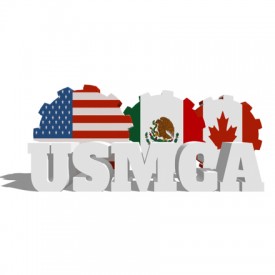Late changes made to the new North American trade pact place Canada into the role of an “honest broker” to assess whether Mexico’s manufacturing operations comply with new labor standards, a trade expert said.
This story by John Irwin originally appeared in Automotive News Canada.
In late 2019, Democratic legislators in the U.S. sought new provisions that would make it easier to enforce higher labor standards in Mexico as part of the new U.S.-Mexico-Canada Agreement, which is set to replace the North American Free Trade Agreement.
After balking at the proposal to allow for increased oversight, Mexico signed on after being assured that Canada would assist to sort out remedies for Mexican auto facilities deemed out of compliance with the USMCA.
“What the Mexicans really feared was that, because they didn’t trust the Trump administration to, in essence, not put their thumb on the scale and use what they would see as spurious grounds to justify imposing tariffs or other measures against certain facilities,” said Eric Miller, president of the Washington-based Rideau Potomac Strategy Group and a fellow at the Woodrow Wilson Center Canada Institute.
“They wanted to have mechanisms that were rules-based, and they wanted Canada to come and look at the situation as need be,” said Miller, who sits on the Canadian deputy minister of trade’s external advisory committee on international trade policy.
The USMCA boosts labor standards and oversight at Mexican plants and requires 40 percent to 45 percent of a vehicle’s parts to be made with labor, making at least $16 an hour. While the U.S. and Mexico have ratified the USMCA, that process is just beginning in Canada.
